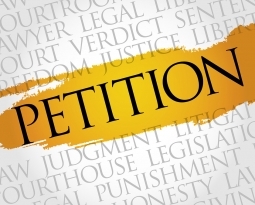Orders of protection in New York
Anyone facing the threat of violence from another person can seek protection via the New York courts. An order of protection, also known as a restraining order or protective order, prohibits that person from engaging in certain activities such as contacting you, going to your home or workplace, or harassing you. To file a petition, you merely have to have a case pending in court.
Where to apply
There are two places where you can request for an order of protection: Civil Court and Criminal Court. The venue you use depends on your relationship to the abuser. You will file the petition in Family (Civil) Court if your connection to the other person matches any of the following:
- Spouse
- Ex-spouse (divorced)
- Blood relative
- Having a child in common
- Former intimate partners
The latter includes people you dated and/or lived with. There does not necessarily have to have been a sexual element to the relationship.
Orders of protection can be issued in Criminal Court regardless of the connection between you and the party you are seeking protection from. The person must simply be arrested and have a Criminal Court action pending against him or her. A temporary order can result if you call the police to protect you from the other person, but a hearing is necessary to change the order into a long-term one.
If you fear harassment or violence at the hands of someone else, then a New York attorney can help you receive a temporary order of protection, which is intended to protect you from immediate harm and last until your next court date. When there is a final disposition in the case, a final order of protection will be issued. Depending on the violence risk involved in your case, the order can last anywhere from one to several years and prohibit the abuser from contacting and intimidating you. In some cases a judge will order the person’s firearms to be confiscated and suspend their gun license.
Violating an order of protection
It is a crime to violate an order of protection issued in a New York Civil or Criminal Court. If the abuser engages in behaviors that violate its terms, then he or she can be arrested. The order can even be enforced if you travel or go to live in another state, although some states require you to register the order locally before it comes into effect. Your attorney will help you get the protection you need to live the life you deserve.
No one deserves to spend every waking minute worried for their safety and wellbeing. If a family member or anyone else is stalking or threatening you, then you should contact an experienced New York City attorney who can guide you through the steps required to obtain an order of protection.





